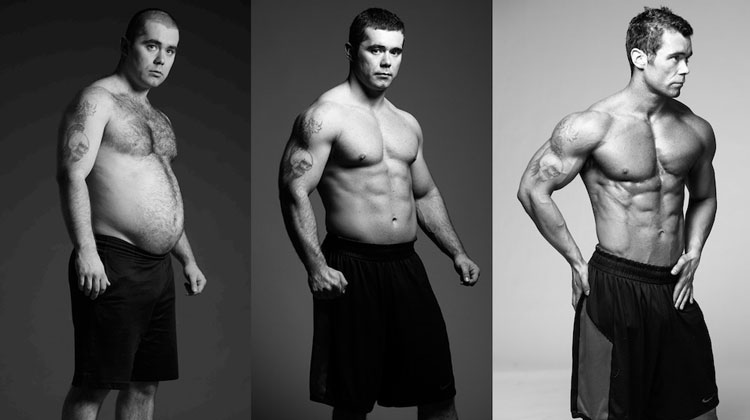
In a world that is so body conscious, finding ways to keep body fat down to a minimum can be confusing at the best of times.
From supplements, shakes and diets, people are constantly trying to find the best ways to enhance their lean physiques to the maximum.
So, can hormones such as testosterone really help you shed pounds of fat while helping you retain lean muscle mass?
Read on to discover all you need to know.
Optimal Hormone Levels Help Reduce Body Fat
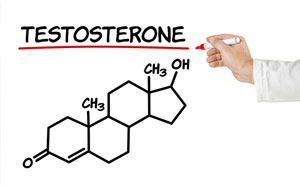 Throughout each and every one of our bodies, testosterone is coursing through our veins.
Throughout each and every one of our bodies, testosterone is coursing through our veins.
Men and women alike, both have testosterone; however, men produce much more than women, whereas women produce far more oestrogen.
Testosterone has three main functions which are anabolic, androgenic, and general health.
It is a naturally occurring steroidal hormone and is what helps define typical male features such as enhanced muscle mass, body hair, a deeper voice and more chiselled facial features.
The anabolic action helps synthesise protein and build muscle mass. This is the steroid action.
The androgenic action is what develops masculine body features and a deeper voice, while for health it helps to ensure that bone and body fat mass are regulated.
Are My Testosterone Levels Too Low?
Testosterone can range from anywhere between 300 – 1200 ng/dL in a clinical test.
If a test is not available to you then there are some common symptoms that can help you understand whether your testosterone levels are too low.
When your testosterone levels fall below 300 ng/dL then you will be classified as having hypogonadism, which is the clinical term for low T-levels.
If you find yourself putting on body fat, especially around the lower stomach, oblique’s and chest, then chances are that you are suffering from low testosterone levels.
How Can Testosterone Help Reduce Fat?

Muscle burns more fat than calories, the more muscle you have, the more calories you burn.
Being a natural steroid, it helps synthesise protein and increase muscle mass thus equating to a higher percentage of calories burned.
A study published by Griggs et al found that boosting T levels in a group of nine male volunteers over a 12-week period, increased muscle mass and protein synthesis by 27%.[1]
Low testosterone levels divert fat away from muscle and leads to the deposit of fat cells in typically female locations on the body. Higher levels help partition calorific energy to muscles and helps build them in both size and strength.
Testosterone also helps keep fat cells smaller by preventing them from absorbing insulin, which turns into glucose and is then stored as fat. The androgen receptors latch on to the fat cells and further prevent energy from being absorbed by fat cells.
A study published in JCEM found that when a group of men had their testosterone levels blocked, their fat mass went up by a massive 36%.[2]
Optimal testosterone also increases your energy levels. While this doesn’t in itself help reduce fat deposits throughout the body, it does allow you to go harder for longer when working out which goes a long way in reducing overall body fat deposits.
So Calories Count For Fat Loss?

In a nutshell, yes!
Go on to any bodybuilding forum and you will see that calories are what makes or breaks a person. But it can get confusing… You need more calories than normal for building muscle, but less to lose body fat.
To lose body fat you need to burn more calories than you consume, to build muscle mass you need to consume more calories than you burn. This is where testosterone comes into play yet again.
- Higher levels of testosterone make it easier for your body to burn adipose tissue (fat), instead of muscle mass.[3]
- Increased Testosterone boosts metabolic rate, which increases the energy burned, and thus creates a bigger calorie deficit.[4]
- Having high levels of testosterone in the blood stream directly inhibits the creation of some new fat cells.[5]
The best way to reduce body fat while building muscle is to alternate days of fasting and feeding. Several days a week are spent in a state of calorie deficit and the remaining days are when you work out and consume more calories to build muscle mass. More muscle mass = less body fat.
So, basically, maintaining normal or optimal testosterone levels will help prevent fat cells from being made, reduce the amount of glucose they absorb and help increase lean body mass leading to a reduced body fat level.
Of course, you still need to burn more calories than you consume while trying to lose body fat, so paying attention to what you put into your body still trumps everything else.
So Can Low Calorific Intake Lower My Testosterone Levels?
Unfortunately, yes.
This is where balance needs to come into the equation. Dieting reduces the amount of energy your body has available to it, thus fatigue sets in quickly.
The reduced calorific intake also leads to a slowing down of the metabolism, which in turn leads to a reduction in fat metabolisation.
The reduced energy available to the body also affects the production of hormones throughout the body, including testosterone.
What Can I Do to Avoid This?

The solution is quite simple.
Forget low fat and high fibre food. These do nothing for your body other than restrict essential fatty acids and flush the body of water.
The body requires fats to absorb certain vitamins and minerals that are utilised in the production of hormones. There are 2 types of fats that can help increase testosterone levels, these are saturated and monounsaturated fats.
Studies have shown that saturated fats can help with resting testosterone concentrations. In fact, vegetarians who consume a lot less dietary fat than those who consume meat tend to have relatively low testosterone levels.[6]
Another study shows that consuming monounsaturated fats, such as those found in olive oil, can help increase testosterone levels in healthy, young males.[7]
So the bottom line for preventing low testosterone levels during dieting is to completely avoid low fat and high fibre diets and stick to healthy and natural diets such as the paleo diet. While low carbing can help reduce body fat, it can also lead to muscle being broken down and burned for energy.
What’s the Bottom Line?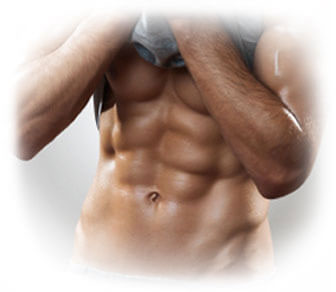
It is vital to maintain healthy levels of testosterone when losing body fat.
Without it, the body will store fat in all the wrong places and leave you slim in areas that are supposed to have fat, and fat in areas where you are supposed to be slim.
Keeping your testosterone levels high will help increase your muscle mass and burn more calories at rest while reducing the amount of fat cells deposited around the body.
The increase in energy will help push you further, especially when reducing calorific intake and help you perform strength training exercises to prevent lean muscle mass loss.
Sure, dieting alone can help you lose body fat, but without an increase in lean muscle mass you will end up skinny. Much better to be muscular and lean instead. Not forgetting to mention the increase in sex drive and libido when your testosterone levels are high, this can also be another way to burn off a few more calories.
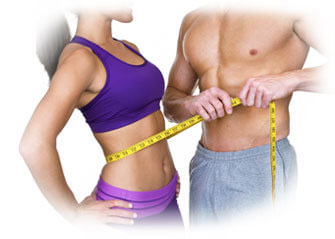
It is important to remember that dieting alone will often result in both body fat AND muscle being reduced, which is not what you want to happen.
Keep your testosterone levels healthy and your body will follow suit.
Thus allowing you to successfully reduce your body fat percentage while increasing your muscle mass.
Ensuring energy levels remain high and help to increase your libido, general health and vitality.
Losing weight with low testosterone levels is like trying to empty a bathtub of water with a sieve, you will put in a lot of effort for minimal results.
Find out for yourself the top 5 natural T-boosters currently available on the market right now.
These are the best choices if you want to...
- Build Muscle Quickly
- Rapid Strength & Size Increases
- Promote Fat Loss
- Increase Energy
- Enhance Sex Drive
Click Here to See the Full List!
References
[1] Griggs, RC et al. Effect of testosterone on muscle mass and muscle protein synthesis. J Appl Physiol (1985). 1989; 66(1): 498-503
[2] Woodhouse, LJ et al. Dose-Dependent Effects of Testosterone on Regional Adipose Tissue Distribution in Healthy Young Men. J Clin Endocrinol Metab (2004) 89 (2): 718-726
[3] http://www.nature.com/ijo/journal/v24/n2s/pdf/0801280a.pdf
[4] http://www.ncbi.nlm.nih.gov/pubmed/1730811
[5] http://www.ncbi.nlm.nih.gov/pubmed/16210377
[6] http://jap.physiology.org/content/82/1/49
[7] http://www.ncbi.nlm.nih.gov/pubmed/23472458
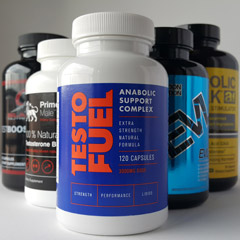





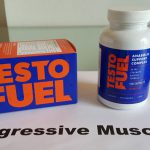

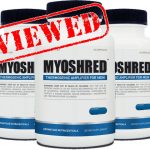
Leave a Reply